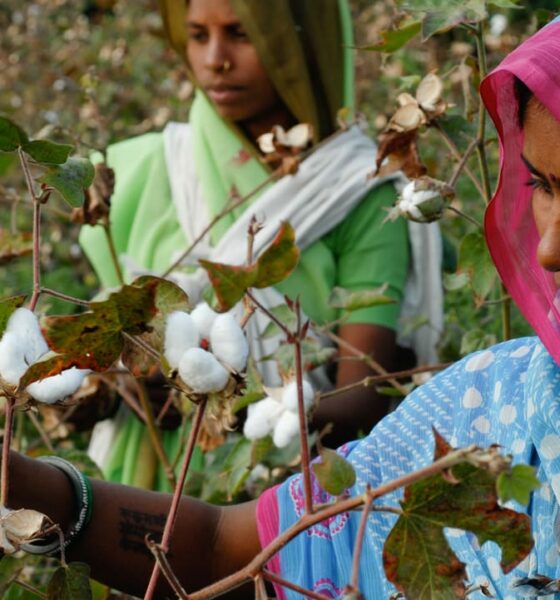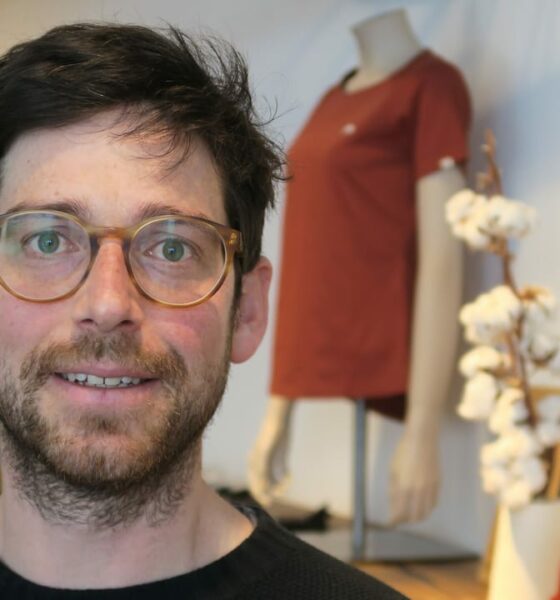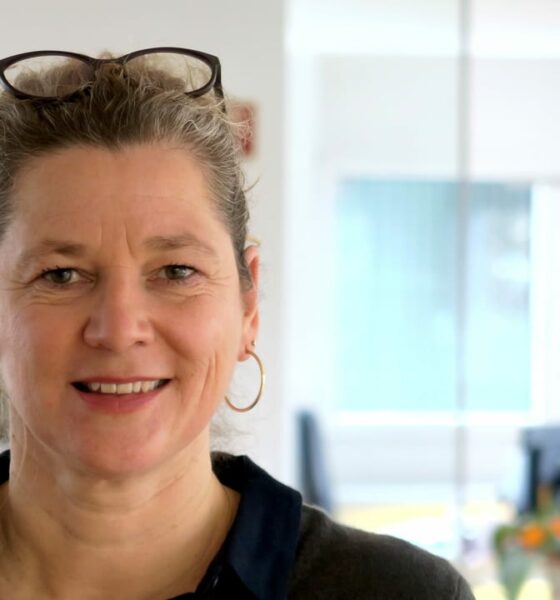
The difficult path to “clothes without secrets”
What is behind the T-shirts or jumpers hanging in the shops? Mostly intransparent production routes. But there is another way. Thomas Heeb, SRF News spoke with Marion Röttges of Remei and Kilian Wiget of ZRCL about fair production without secrets.
Listen to the complete report
It is a long way from the cotton that is picked in Africa, for example, to the T-shirt in the shop here with us. And above all: it is a non-transparent path. Which companies have their hands in the pie? How well do they pay their pickers or under what conditions do their seamstresses have to work? Most people who buy a T-shirt don’t know.
Founding a company as an opportunity
Kilian Wiget from Schwyz didn’t know it either, back when he was still working in a sports shop. Although he dealt with clothes on a daily basis. But it interested him and with the founding of his own company ZRCL five years ago, he seized the opportunity to take a closer look at the subject.
Today he stands in his shop in Schwyz, amid jumpers, T-shirts and jackets, and says: “These may look like normal textiles, but they all have a special story. They are clothes without secrets, we try to produce completely fairly, ecologically and transparently.”
His company ZRCL now sells around 15,000 garments a year and counts on the services of the Zug-based company Remei, which also produces textiles for Mammut or Coop Naturaline. Remei is at first sight a small company with 17 employees, but it controls its entire global textile supply chain from Rotkreuz.
And: the company has developed its own system so that customers can track exactly through which stations their clothes were produced. Thanks to a code on each individual garment, it is possible to see on a world map on the internet where the seeds came from, where the cotton grew, who produced the yarn and who finally sewed the garment together.
“Transparency is the basic prerequisite for sustainable production,” Marion Röttges, co-manager of Remei, is convinced. “Because it’s the only way to see where there are problems that need to be addressed or where improvements could be made.”


A closer look from Public Eye
The organisation Public Eye is also campaigning for more transparency in textile production. It regularly scrutinises the larger companies in the industry. This includes the Rotkreuz-based company Remei, which produces about one million garments per year. Public Eye’s conclusion: Remei does many things better than other companies. But there is still room for improvement in the wages of the seamstresses and sewers.
“We have implemented social standards in all 36 companies we work with worldwide, which also address the wage issue,” Marion Röttges replies, but also admits: “These are long-term processes. But we are in dialogue with everyone.”
The Remei co-head is convinced that the topic of “fair textile production” is becoming more and more important in society. More and more people are concerned about where the clothes they buy come from.
Kilian Wiget, who has dedicated his shop in Schwyz to sustainably produced textiles, also observes this. “It is an absolute trend. You don’t just see it with clothes. Sustainability is also the big topic at the moment with mobility, energy and food.”

